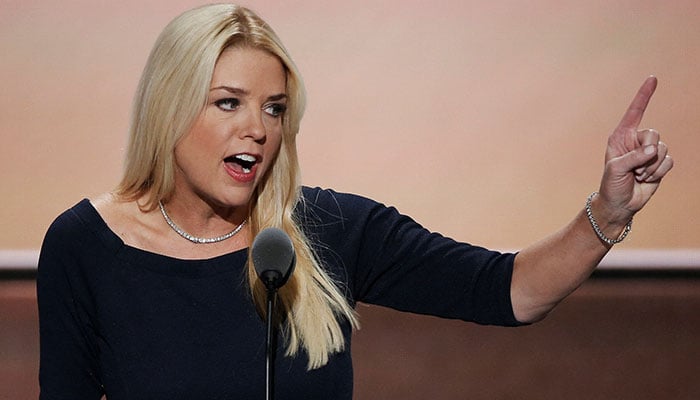
RALEIGH: Kamala Harris outlined proposals to cut taxes for most Americans, ban "price gouging" by grocers and build more affordable housing on Friday as part of the "opportunity economy" she plans to pursue if she wins the White House.
In her first major economy-focused speech as the Democratic presidential nominee, Harris pledged to introduce a new child tax credit of as much as $6,000 for families with infants, cut taxes for families with kids and lower prescription drug costs.
The vice president also called for the construction of 3 million new housing units over four years and a tax incentive for home builders who build homes for first-time buyers.
Harris told supporters at a rally in North Carolina, a state she hopes to win in the Nov. 5 election, that the US economy was strong but prices were still too high. She said she would be laser-focused on the middle class as president.
"Together we will build what I call an opportunity economy," she said. "Building up the middle class will be a defining goal of my presidency because I strongly believe when the middle class is strong, America is strong."
Her agenda may run into resistance from both corporations and Congress, which rejected similar proposals when they came from President Joe Biden.
Harris, who said she would reveal more details of her economic plans in the weeks to come, is aiming to draw a contrast with her opponent, Republican Donald Trump, on broad economic values, and specifically on tariffs and taxes.
The former president has proposed new across-the-board tariffs on imports, an idea Harris rejects.
"He wants to impose what is in effect a national sales tax on everyday products and basic necessities that we import from other countries," Harris said. "That will devastate Americans."
"It will mean higher prices on just about every one of your daily needs: A Trump tax on gas. A Trump tax on food. A Trump tax on clothing. A Trump tax on over-the-counter medication."
In a call with reporters on Friday, Trump economic advisers Kevin Hassett and Stephen Moore argued that Harris' proposals would boost inflation and damage the economy. A proposal to offer as much as $25,000 to first-time homeowners would do little more than jack up home prices, they said.
Republicans fault Biden and Harris for presiding over an economy in which prices have risen and blame their policies for driving inflation.
Harris' plans are meant to address that by appealing to a broad segment of the working public who often see Republicans as better economic stewards and are anxious over both higher costs and their economic prospects.
Some of her policies, including ones on housing and groceries, have come under attack as ill-considered and overly liberal populism by Republicans and some industry groups.
The nonpartisan Committee for a Responsible Federal Budget estimated that Harris' economic plan would increase deficits by a net $1.7 trillion over a decade, a number that could grow to $2 trillion if temporary housing policies were made permanent.
Food and housing
Harris' plan includes a federal ban on price gouging on food and groceries, which her campaign says aims to stop big corporations from unfairly exploiting consumers while generating excessive corporate profits.
As president, she would direct the Federal Trade Commission to impose "harsh penalties" on companies that break new limits on price gouging, campaign officials said.
"I know most businesses are creating jobs, contributing to our economy and playing by the rules," Harris said. "But some are not, and that's just not right. And we need to take action when that is the case."
Progressive economic ideas poll well with voters, but they have proven tough to pass into law. Most of Harris' and Trump's economic priorities need to secure majority support in Congress. A child tax credit bill passed the House of Representatives but stalled in the Senate this year.
Her plan calls for a series of tax incentives and other measures to encourage building homes for first-time homebuyers and the $25,000 credit for such buyers. Harris also aims to expand rental assistance, ban rental price-fixing and stop Wall Street firms from buying homes in bulk.
Harris also is pushing to lower healthcare costs, cancel medical debt and highlight how the Biden administration negotiated down the prices of 10 top-selling prescription drugs used by Medicare by as much as 79%.
Harris is maintaining Biden's promise not to raise taxes on people who make $400,000 or less a year, and her campaign aims to draw a contrast on taxes with Trump, who slashed the corporate tax rate to 21% from 35% and implemented other tax breaks that are set to expire next year. Trump has promised to make the tax cuts permanent.













